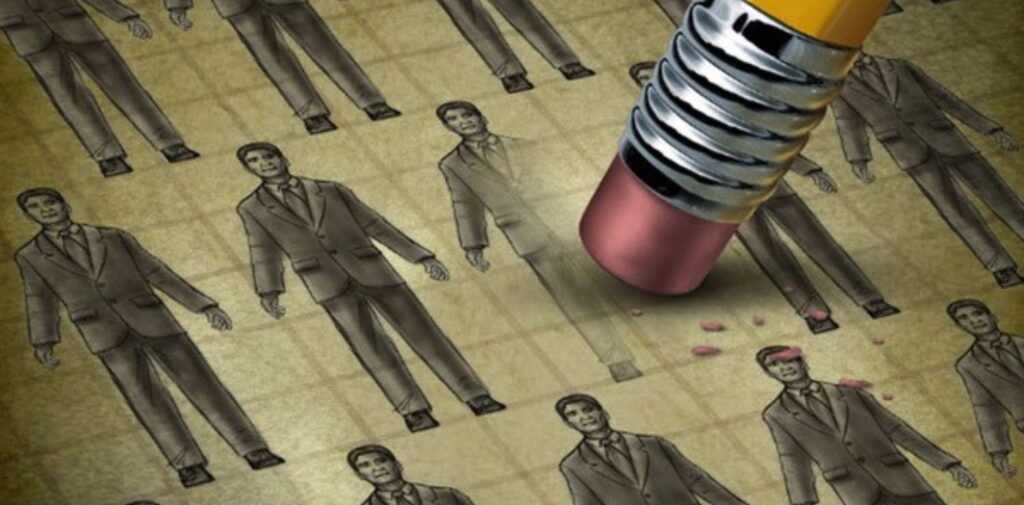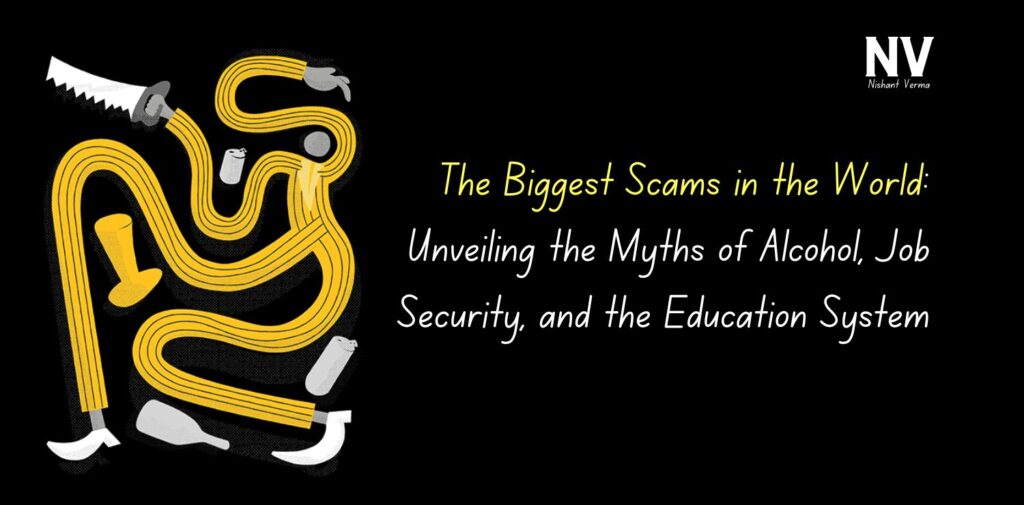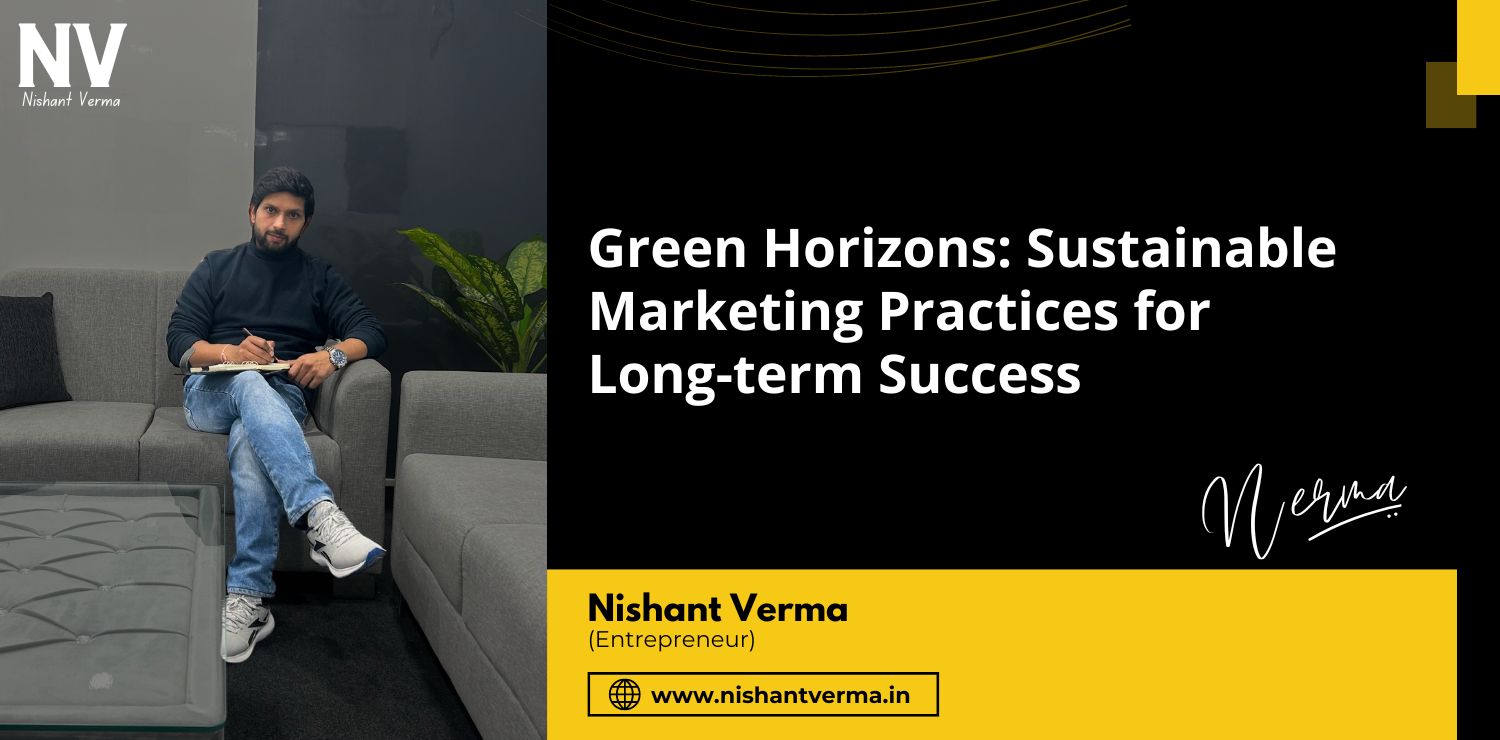We live in a world where certain ideas are widely accepted as normal, but does that make them right? Often, what we perceive as “normal” is a carefully curated narrative, disguising the truth and pushing us into a life we never truly questioned. Today, we’re going to break down three of the biggest scams in the world: Alcohol, Job Security, and the Education System. Let’s dive into why these seemingly innocent concepts might not be as beneficial as society makes them out to be.
Alcohol: The “Social” Poison
Alcohol is marketed as the ultimate social lubricant, the drink that makes parties fun, the stress-buster at the end of a long day, or the reward for your hard work. But is it?
The Reality: Despite being one of the most consumed and accepted substances globally, alcohol is a depressant that significantly affects physical and mental health. According to research, alcohol is linked to over 200 diseases and injury conditions. It can lead to liver damage, cardiovascular issues, and mental health disorders like depression and anxiety. It’s also a major factor in accidents and crimes. Yet, it’s promoted as a “normal” part of adult life.
The Scam: Alcohol companies spend billions on marketing to ensure it’s seen as glamorous, fun, and essential for a good time. Society labels those who abstain as ‘boring,’ further pressuring people to conform. The truth is, that alcohol brings more harm than good, and the “fun” aspect is merely a distraction from the damage it causes.
What’s the Way Out? Question your relationship with alcohol. Ask yourself if you genuinely enjoy it or if it’s just a habit. There are many healthier ways to relieve stress and enjoy social events without risking your health or well-being.

Job Security: The Modern-Day Myth
We’ve been told to work hard, get a stable job, and retire comfortably. Job security is painted as the ultimate goal—an assurance of a paycheck and a worry-free future. But is this idea of job security realistic in today’s fast-changing world?
The Reality: The concept of job security is outdated. With automation, artificial intelligence, and frequent economic downturns, no job is truly “secure” anymore. Companies are looking for efficiency, and employees are often considered expendable. Many people who thought they had secure jobs have faced layoffs, job cuts, or stagnating careers.
The Scam: Companies perpetuate the myth of job security to keep employees compliant and dependent. Promotions, benefits, and raises are dangled like carrots, making people work harder and longer. But when times get tough, companies prioritize profits over people.
What’s the Way Out? Understand that the only true job security is the one you create for yourself through continuous learning and skill development. Instead of blindly chasing job security, invest in acquiring skills that make you adaptable and irreplaceable. Consider exploring side hustles, freelancing, or entrepreneurship to diversify your income sources.

The Education System: A Factory for Obsolete Knowledge
From a young age, we’re told that getting a good education is the key to success. Our parents, teachers, and society drill into us the importance of good grades, higher education, and prestigious degrees. But is the education system designed to help us succeed?
The Reality: The traditional education system often focuses on rote learning, memorization, and passing exams. Students are trained to follow instructions, work within a rigid structure, and seldom get the opportunity to think outside the box. Most of the curriculum is outdated, and by the time students graduate, much of what they learned is irrelevant in the real world.
The Scam: Educational institutions are run like businesses. From tuition fees to textbook costs, everything is priced high, while the promise of a well-paying job after graduation is becoming less of a reality. Many graduates end up in debt, struggling to find jobs that match their degrees or switching fields entirely.
What’s the Way Out? Realize that education doesn’t end with a degree. Focus on lifelong learning, pick up practical skills that are in demand, and never stop upgrading yourself. The internet offers countless free and affordable resources that can teach you more than any degree.

Why Do We Fall for These Scams?
The reason these scams are so powerful is because they’ve been normalized by society. From advertisements to social expectations, we’re bombarded with messages telling us that drinking alcohol, aiming for job security, and following a traditional education path are the right choices.
But just because everyone else is doing it doesn’t mean it’s the best thing for you.

How to Break Free from These Biggest Scams in the world
Breaking free from these societal scams starts with awareness. Here are a few steps to take:
- Challenge the Norms: Just because something is socially accepted doesn’t make it right. Question why things are the way they are.
- Seek Knowledge: Learn about the negative effects of alcohol, the truth about job security, and the limitations of the education system. The more informed you are, the better decisions you can make.
- Find Alternatives: Look for healthier ways to cope with stress rather than relying on alcohol. Explore multiple income streams instead of depending on a single job. Educate yourself in areas that are relevant to today’s world, like digital skills, entrepreneurship, or critical thinking.
- Talk About It: Share what you’ve learned with others. Conversations about these topics can lead to more people questioning and ultimately rejecting these scams.
The Bottom Line
Alcohol, job security, and the education system are deeply ingrained in our society, but that doesn’t mean we have to follow them blindly. By questioning and understanding the truth behind these so-called norms, we can make better decisions for ourselves and future generations.
These scams will continue to exist as long as people accept them as normal. The change starts with you. Decide today to look beyond the surface and choose a path that truly aligns with your values and goals.
Remember, just because people call it normal, doesn’t mean it’s normal.




